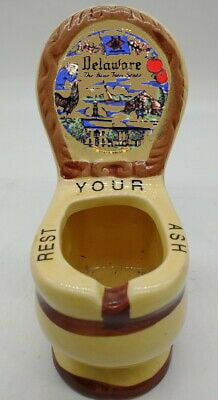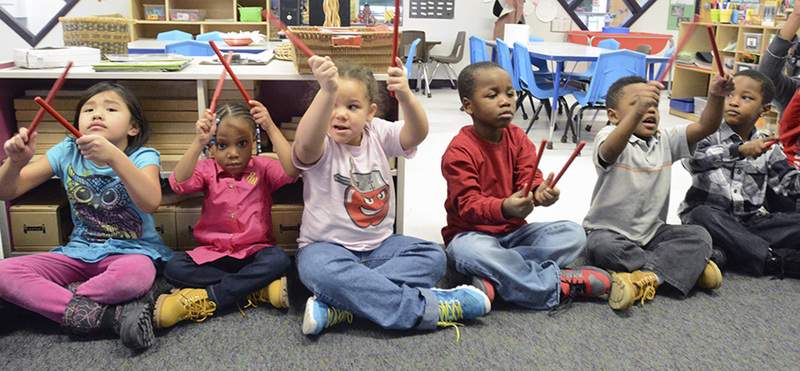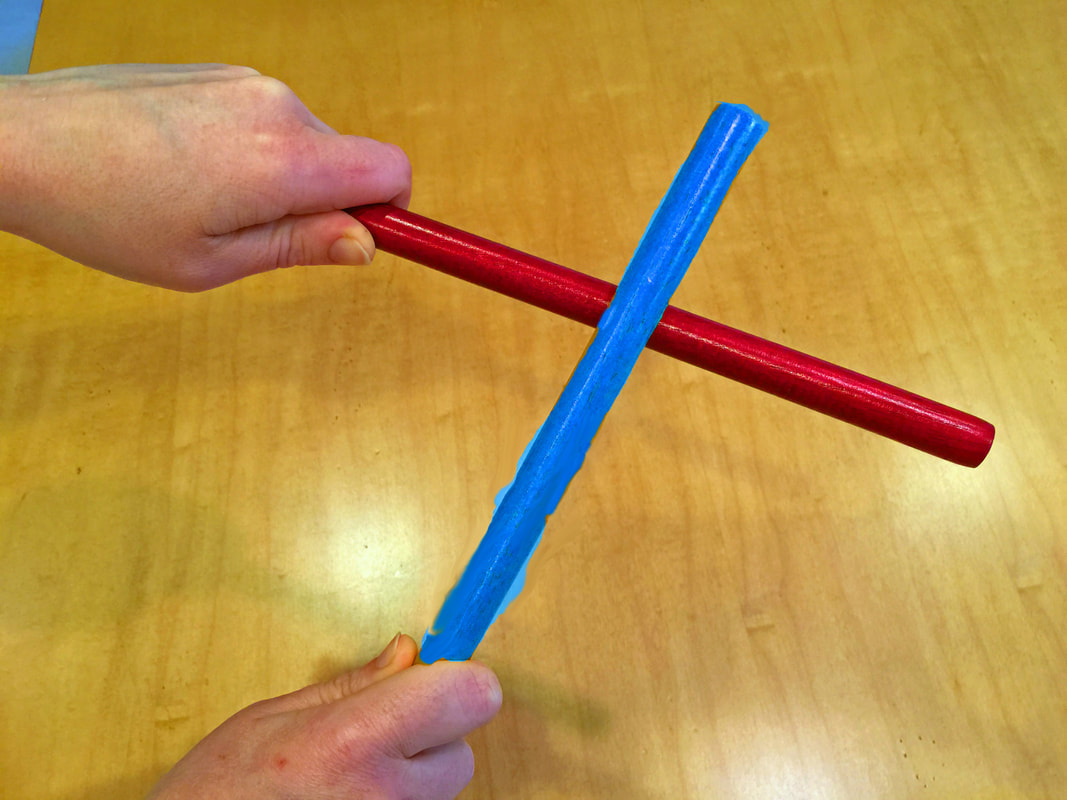When I was a kid, our family did maybe two or three day trips to the beach every summer. Never overnight, just a day trip. These were the days when Route 13 was a two-lane highway, one lane south, one lane north. I didn't have any brothers or sisters so that meant I got to have the backseat all to myself. Armed with a bottle of Sea ‘n Ski suntan lotion that my mother bought me, I would surreptitiously roll down the back window and squirt it at the cars behind us. Yeah, I was that kid. The one that if you were in the car behind us, referred to me as “little jerk”.
I loved the beach. I was terrified of the water, couldn't stand the smell of the flotsam and jetsam, and hated lying in the sun because we never had an umbrella. But other than that, Mrs. Lincoln, I really loved the beach. It was where my father introduced me to the Ski Ball arcade.
All the prizes on the wall, the clattering noise of the score tabulators above the concentric targets, the smooth sound of the rolling balls after impact, the smell of ashtrays that had yet to be emptied that season, the thought of earning enough tickets to win that Revel model plane kit on the top shelf. You only needed 100 tickets to get it.
“Nothing to it”, said my father. “I'll show you how it's done.” and he and I racked up those tickets faster than pea soup coming out of Linda Blair's mouth. Four hours later and ten pounds of quarters lighter, we had 100 tickets. Some might have said that my father hadn't achieved "baller" status in Ski Ball but he would counter that he was a methodical worker - and he delivered on those 100 tickets. We proudly took our bounty up to the glass counter to claim our prize.
I loved the beach. I was terrified of the water, couldn't stand the smell of the flotsam and jetsam, and hated lying in the sun because we never had an umbrella. But other than that, Mrs. Lincoln, I really loved the beach. It was where my father introduced me to the Ski Ball arcade.
All the prizes on the wall, the clattering noise of the score tabulators above the concentric targets, the smooth sound of the rolling balls after impact, the smell of ashtrays that had yet to be emptied that season, the thought of earning enough tickets to win that Revel model plane kit on the top shelf. You only needed 100 tickets to get it.
“Nothing to it”, said my father. “I'll show you how it's done.” and he and I racked up those tickets faster than pea soup coming out of Linda Blair's mouth. Four hours later and ten pounds of quarters lighter, we had 100 tickets. Some might have said that my father hadn't achieved "baller" status in Ski Ball but he would counter that he was a methodical worker - and he delivered on those 100 tickets. We proudly took our bounty up to the glass counter to claim our prize.
“Oh, but those are orange tickets.”, said the man in the three-day-old Schlitz t-shirt that was a size too small. “One hundred orange tickets equals one yellow ticket. And ten yellow tickets equals one red ticket. And you need 100 RED tickets to get that model.”
My father was momentarily stunned.
Stunned but hooked. Schlitz guy was reeling him in. Back to the Ski Balls we went.
Imagine my mother's pride when we came back to the beach and I told her that dad won us an ashtray that looked like a toilet!
Stunned but hooked. Schlitz guy was reeling him in. Back to the Ski Balls we went.
Imagine my mother's pride when we came back to the beach and I told her that dad won us an ashtray that looked like a toilet!
Not quite a model airplane.
And so it goes.
Often times, things have a distinct order to them.
Orange, yellow, red? Check.
Bait? Check?
Hook? Check.
Reel ‘em in.
And so it was in my music room.
The big draw was the piano keyboards and the guitars. I didn’t have to sell them very hard the first few days of each new year, the kids did that. The buzz in the hallway and cafeteria was that Mr. Holmes had all these guitars and pianos, that they were going to be playing those beautiful keyboards and guitars this year in music. And he even gives away a guitar at the concert!
I usually announced during our second class that we were going to start instruments the next time they came to music.
When they showed up the following week, I gave everybody a pair of blue and red rhythm sticks with a big smile on my face.
“What about the guitars? And the keyboards?”, they asked.
“I told you, we were going to start instruments this week! Here are your instruments. (AKA orange tickets)”
“But where are the guitars? You said guitars, you said pianos! And don't forget recorders, we're going to be buying and playing recorders, too! But the guitars?”
At this stage, I pointedly glared at the class and aggressively put a check in the “minus” column on the chalk board.
“Now seriously, you know me – or at least most of you do. Do you think Mr. Holmes is going to give you a $300 piano to play right off the bat if I don’t know if you can play a $2.95 pair of sticks without blowing them up?
No!
And so it goes.
Often times, things have a distinct order to them.
Orange, yellow, red? Check.
Bait? Check?
Hook? Check.
Reel ‘em in.
And so it was in my music room.
The big draw was the piano keyboards and the guitars. I didn’t have to sell them very hard the first few days of each new year, the kids did that. The buzz in the hallway and cafeteria was that Mr. Holmes had all these guitars and pianos, that they were going to be playing those beautiful keyboards and guitars this year in music. And he even gives away a guitar at the concert!
I usually announced during our second class that we were going to start instruments the next time they came to music.
When they showed up the following week, I gave everybody a pair of blue and red rhythm sticks with a big smile on my face.
“What about the guitars? And the keyboards?”, they asked.
“I told you, we were going to start instruments this week! Here are your instruments. (AKA orange tickets)”
“But where are the guitars? You said guitars, you said pianos! And don't forget recorders, we're going to be buying and playing recorders, too! But the guitars?”
At this stage, I pointedly glared at the class and aggressively put a check in the “minus” column on the chalk board.
“Now seriously, you know me – or at least most of you do. Do you think Mr. Holmes is going to give you a $300 piano to play right off the bat if I don’t know if you can play a $2.95 pair of sticks without blowing them up?
No!
I'm going to give you a $2.95 pair of blue and red sticks and see what you can do with them. If you break these stick, you will not TOUCH another instrument this year. But, if you can actually show me that you can take care of them and make some music with them, I'll consider moving you up to recorders (AKA yellow tickets)”. They cost $3.00.
And if you handle those $3.00 recorders okay, make some nice music and not break them, we’ll move up to xylophone (AKA red tickets)”. They are REALLY expensive. They cost $59.99! And if you haven't driven me crazy by that point and you don’t break them, we will do xylophones and . . . wait for it . . . pianos together! But those pianos aren’t cheap. They cost $150.00!
“If you can use a $150.00 instrument the right way, not break it, and make some nice music with it, and if you show me that you can control ten fingers on two hands, we will move up to the . . . ?”
“Guitar!!”
“But they cost even more and are very fragile. Who knows how much they cost?”
“$200.00?”
“Higher!”
“$300.00?”
With mock anger, “Higher!”
“$1,000.00!”
“MUCH higher!!”
“A million dollars!!”
By now, we are all laughing. “You’re getting close. Just know they cost a lot – and I bought them, not the school. They are mine”
Now they are silent and a bit in shock.
“That’s right – mine. And if you don’t treat my pianos and guitars with respect, I do not have to let you play them. When the class is playing guitar and piano, the kids who don’t respect the expensive instruments will get . . . the BLUE AND RED STICKS!”
In fake horror, they all yell, “NO!”
“But all of you are going to follow directions, right?”
“Right!”
“And be awesome?”
“Right!”
“And this hand is my . . . . .?”, raising my left hand.
Now I hear a crazy mix of left and right dissolving into laughter.
“Hey, kids, we’ll be playing those pianos and guitars before you know it. But you have to understand. I can’t give a kid something expensive to use if I don't know if they can respect and properly use it. Think about it. If some kid breaks a guitar, that’s one less guitar I have for YOU to play.”
“And did I mention if you can do those sticks the right way today, we’ll add those paint can drums tomorrow?
Now their eyebrows pick up in expectation.
“So let’s make some music and have some ‘GO’ time!”
And as I quickly move the magnet from “stop” to “go”, the room explodes in pent-up animated conversation and emotion. They need to release the energy through talking.
A rough translation of the above for other music teachers would be:
“Yeah, I'm not just going to let kids destroy my instruments.
I'm going to have a real system on how I fold out my instrumental music program through the year. That progression is going to have an pattern of skills building upon skills. It will lead to an incredible final two months.
And yeah, each of those instruments is a gateway drug to the next instrument. If I can get them hooked on sticks and paint cans, if they think those paint cans are great, wait till they see the xylophone songs. Each one leads to the next. And the kick that they get when we bring the guitars in to the mix towards the end of the year is, well, it's just euphoric.”
Music teachers can capitalize on the fact that each instrument is an increased gateway buzz leading into the next instrument.
Fagen's lyric was applicable to my childhood music teachers, “It’s not some game I play, it's in my DNA.” In retrospect, I can see how my music teachers did it to me. I’m not trying to make them sound ominous like Curtis Mayfield’s “Pusherman”, or that they were bringin’ the skeeve like Sammy Davis Jr.'s “Candyman”, but there was an element of truth about the better the music teacher, the more kids get hooked on music. And I was one of those kids.
And I became that teacher.
Once you get kids latched onto music, there is an ancillary benefit because you have probably kick-started their intellectual curiosity in other areas, too.
Once you turn them on to the idea that music is awesome and it happens at school, it's not that the rest is easy, because it isn't.
It's just that the rest becomes an expanding blank canvas where you, as the teacher, fades and the kids design their own vision of fun, knowledge, and success.
My father passed away a few years back but before he did, I thanked him for teaching me so many things, including how the orange tickets in life work.
And if you were in the car driving behind us on the way to Rehoboth on Route 13, this little jerk wants to say he's sorry.
May I make it up to you with a complimentary set of red and blue sticks?
And if you handle those $3.00 recorders okay, make some nice music and not break them, we’ll move up to xylophone (AKA red tickets)”. They are REALLY expensive. They cost $59.99! And if you haven't driven me crazy by that point and you don’t break them, we will do xylophones and . . . wait for it . . . pianos together! But those pianos aren’t cheap. They cost $150.00!
“If you can use a $150.00 instrument the right way, not break it, and make some nice music with it, and if you show me that you can control ten fingers on two hands, we will move up to the . . . ?”
“Guitar!!”
“But they cost even more and are very fragile. Who knows how much they cost?”
“$200.00?”
“Higher!”
“$300.00?”
With mock anger, “Higher!”
“$1,000.00!”
“MUCH higher!!”
“A million dollars!!”
By now, we are all laughing. “You’re getting close. Just know they cost a lot – and I bought them, not the school. They are mine”
Now they are silent and a bit in shock.
“That’s right – mine. And if you don’t treat my pianos and guitars with respect, I do not have to let you play them. When the class is playing guitar and piano, the kids who don’t respect the expensive instruments will get . . . the BLUE AND RED STICKS!”
In fake horror, they all yell, “NO!”
“But all of you are going to follow directions, right?”
“Right!”
“And be awesome?”
“Right!”
“And this hand is my . . . . .?”, raising my left hand.
Now I hear a crazy mix of left and right dissolving into laughter.
“Hey, kids, we’ll be playing those pianos and guitars before you know it. But you have to understand. I can’t give a kid something expensive to use if I don't know if they can respect and properly use it. Think about it. If some kid breaks a guitar, that’s one less guitar I have for YOU to play.”
“And did I mention if you can do those sticks the right way today, we’ll add those paint can drums tomorrow?
Now their eyebrows pick up in expectation.
“So let’s make some music and have some ‘GO’ time!”
And as I quickly move the magnet from “stop” to “go”, the room explodes in pent-up animated conversation and emotion. They need to release the energy through talking.
A rough translation of the above for other music teachers would be:
“Yeah, I'm not just going to let kids destroy my instruments.
I'm going to have a real system on how I fold out my instrumental music program through the year. That progression is going to have an pattern of skills building upon skills. It will lead to an incredible final two months.
And yeah, each of those instruments is a gateway drug to the next instrument. If I can get them hooked on sticks and paint cans, if they think those paint cans are great, wait till they see the xylophone songs. Each one leads to the next. And the kick that they get when we bring the guitars in to the mix towards the end of the year is, well, it's just euphoric.”
Music teachers can capitalize on the fact that each instrument is an increased gateway buzz leading into the next instrument.
Fagen's lyric was applicable to my childhood music teachers, “It’s not some game I play, it's in my DNA.” In retrospect, I can see how my music teachers did it to me. I’m not trying to make them sound ominous like Curtis Mayfield’s “Pusherman”, or that they were bringin’ the skeeve like Sammy Davis Jr.'s “Candyman”, but there was an element of truth about the better the music teacher, the more kids get hooked on music. And I was one of those kids.
And I became that teacher.
Once you get kids latched onto music, there is an ancillary benefit because you have probably kick-started their intellectual curiosity in other areas, too.
Once you turn them on to the idea that music is awesome and it happens at school, it's not that the rest is easy, because it isn't.
It's just that the rest becomes an expanding blank canvas where you, as the teacher, fades and the kids design their own vision of fun, knowledge, and success.
My father passed away a few years back but before he did, I thanked him for teaching me so many things, including how the orange tickets in life work.
And if you were in the car driving behind us on the way to Rehoboth on Route 13, this little jerk wants to say he's sorry.
May I make it up to you with a complimentary set of red and blue sticks?





 RSS Feed
RSS Feed